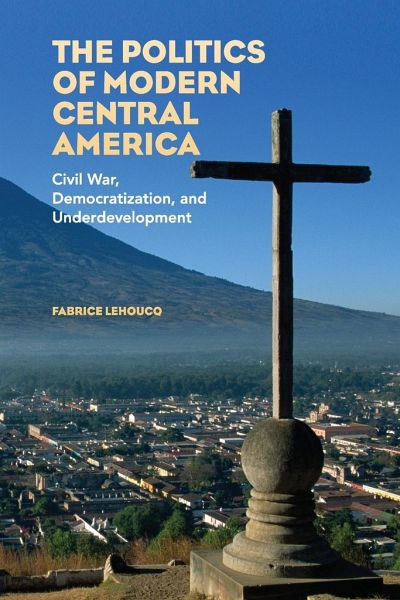
The Politics of Modern Central America
Versandkostenfrei!
Versandfertig in 1-2 Wochen
34,99 €
inkl. MwSt.

PAYBACK Punkte
17 °P sammeln!
This book analyzes the origins and consequences of civil war in Central America. Fabrice Lehoucq argues that the inability of autocracies to reform themselves led to protest and rebellion throughout the twentieth century and that civil war triggered unexpected transitions to non-military rule by the 1990s. He explains how armed conflict led to economic stagnation and why weak states limit democratization - outcomes that unaccountable party systems have done little to change. This book also uses comparisons among Central American cases - both between them and other parts of the developing world...
This book analyzes the origins and consequences of civil war in Central America. Fabrice Lehoucq argues that the inability of autocracies to reform themselves led to protest and rebellion throughout the twentieth century and that civil war triggered unexpected transitions to non-military rule by the 1990s. He explains how armed conflict led to economic stagnation and why weak states limit democratization - outcomes that unaccountable party systems have done little to change. This book also uses comparisons among Central American cases - both between them and other parts of the developing world - to shed light on core debates in comparative politics and comparative political economy. This book suggests that the most progress has been made in understanding the persistence of inequality and the nature of political market failures, while drawing lessons from the Central American cases to improve explanations of regime change and the outbreak of civil war.




